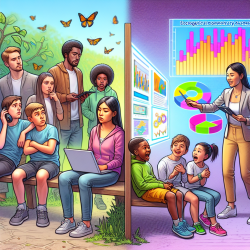Why Remote Assessment?
Remote assessment emerged as a necessity during the pandemic, but its benefits have far-reaching implications. Here are some key advantages:- Accessibility: Remote assessment allows for greater access to services, especially in rural or underserved areas.
- Flexibility: It offers scheduling flexibility, making it easier for students and parents to participate.
- Continuity: It ensures that educational and therapeutic services are not interrupted, even during crises.
Best Practices for Remote Assessment
To make the most of remote assessment, practitioners should adhere to the following guidelines:- Build Rapport: Establishing a connection can be challenging in a virtual environment. Spend a few minutes chatting about the student's interests to make them feel comfortable.
- Prepare the Examinee: A pre-assessment session can help alleviate anxiety. Explain what to expect and the types of activities involved.
- Frequent Check-ins: Regularly check on the student's comfort and stamina. Ensure that the audio and visual components are functioning correctly.
Challenges and Considerations
While remote assessment offers many benefits, it also presents challenges:- Technical Issues: Ensure that both you and the student have a stable internet connection and are familiar with the technology.
- Attention Span: Younger children or those with attention deficits may struggle with remote assessments. Tailor your approach to the individual needs of the student.
- Validity and Reliability: Be cautious when interpreting results, as some assessments may not be fully validated for remote administration.
Encouraging Further Research
The field of remote assessment is still evolving. Practitioners should stay informed about new developments and research. Here are some ways to stay updated:- Professional Development: Attend webinars, workshops, and conferences focused on remote assessment.
- Peer Collaboration: Join professional networks and forums to share experiences and best practices.
- Ongoing Education: Read the latest research articles and publications to stay abreast of new findings.
Conclusion
Remote assessment is a powerful tool that can enhance accessibility and continuity of services. By following best practices and staying informed about new research, practitioners can effectively leverage this modality to improve their skills and better serve their students.To read the original research paper, please follow this link: Remote Assessment: Origins, Benefits, and Concerns.










